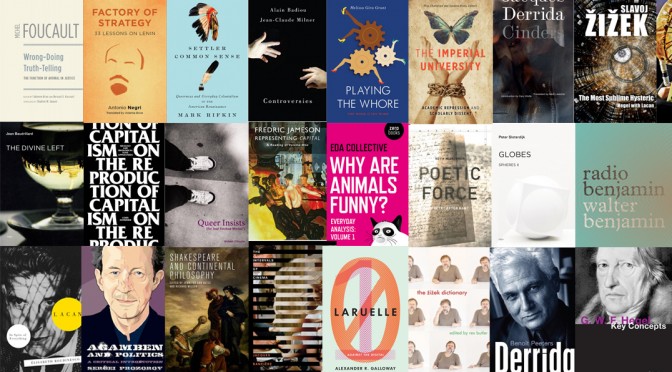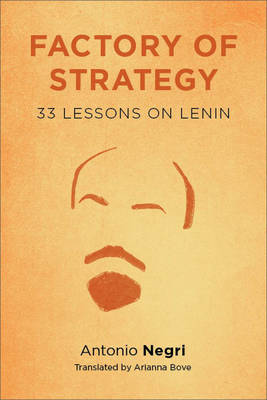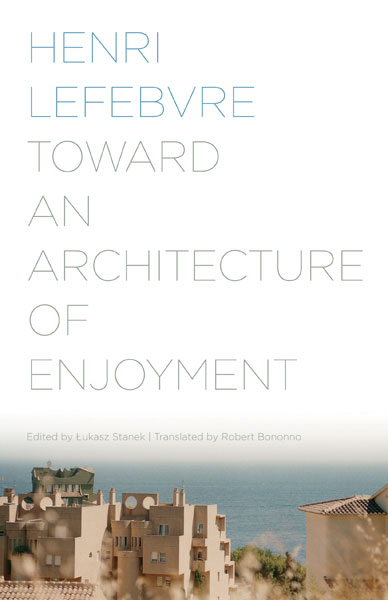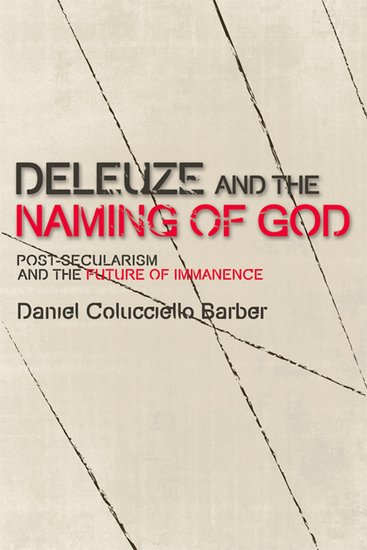If you’re a publisher or author, please let us know about your upcoming books by emailing [email protected] so you may be included in future roundups. We’ll also update this list at the end of the year with December releases.
Did we miss anything? Let us know in the comments, and don’t forget to vote for the best book of 2014 here.
#1 Wrong-Doing, Truth-Telling
by Michel Foucault
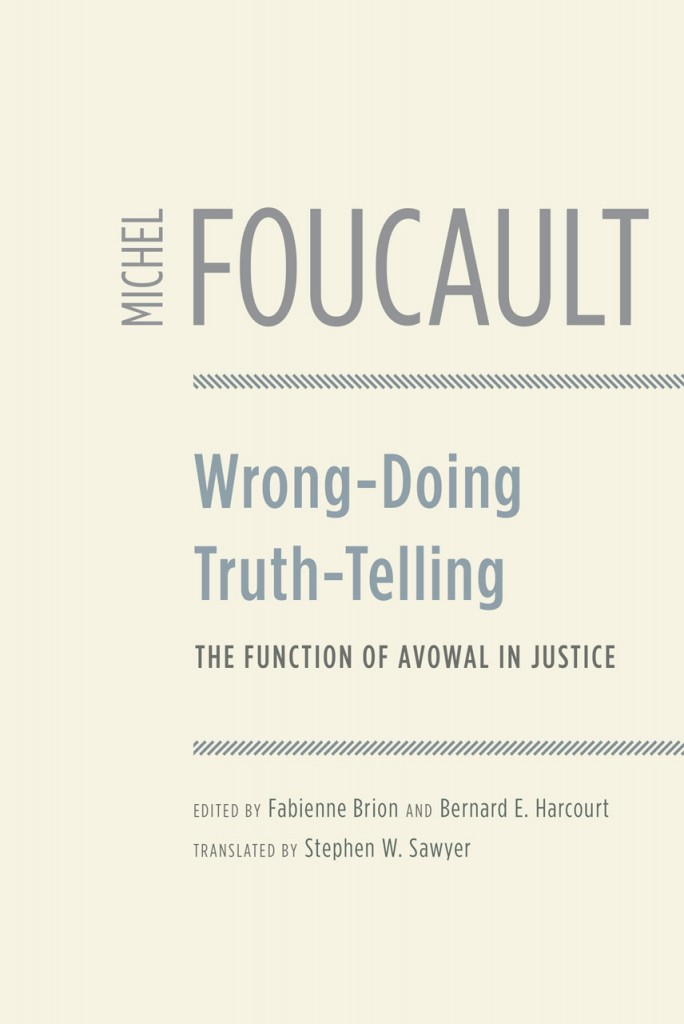
“Three years before his death, Michel Foucault delivered a series of lectures at the Catholic University of Louvain that until recently remained almost unknown. These lectures—which focus on the role of avowal, or confession, in the determination of truth and justice—provide the missing link between Foucault’s early work on madness, delinquency, and sexuality and his later explorations of subjectivity in Greek and Roman antiquity.
#2 On The Reproduction of Capitalism
By Louis Althusser.
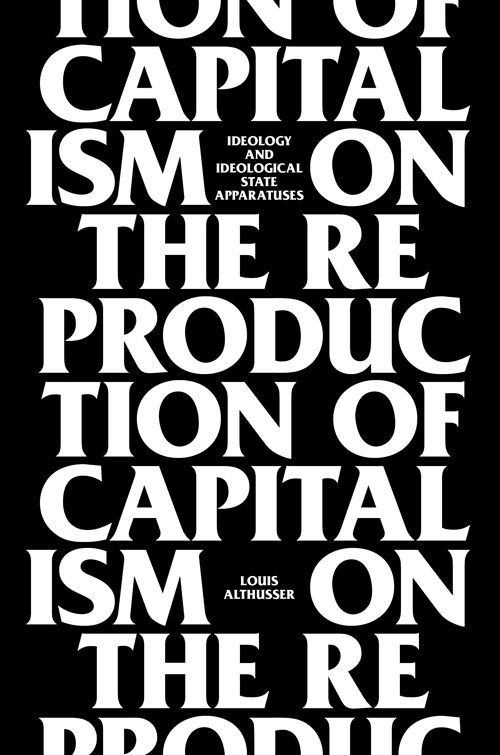
“Louis Althusser’s renowned short text ‘Ideology and Ideological State Apparatuses’ radically transformed the concept of the subject, the understanding of the state and even the very frameworks of cultural, political and literary theory. The text has influenced thinkers such as Judith Butler, Ernesto Laclau and Slavoj Žižek.
The piece is, in fact, an extract from a much longer book, On the Reproduction of Capitalism, until now unavailable in English. Its publication makes possible a reappraisal of seminal Althusserian texts already available in English, their place in Althusser’s oeuvre and the relevance of his ideas for contemporary theory. On the Reproduction of Capitalism develops Althusser’s conception of historical materialism, outlining the conditions of reproduction in capitalist society and the revolutionary struggle for its overthrow.”
Buy it here.
#3 Out of Time
By Lynne Segal
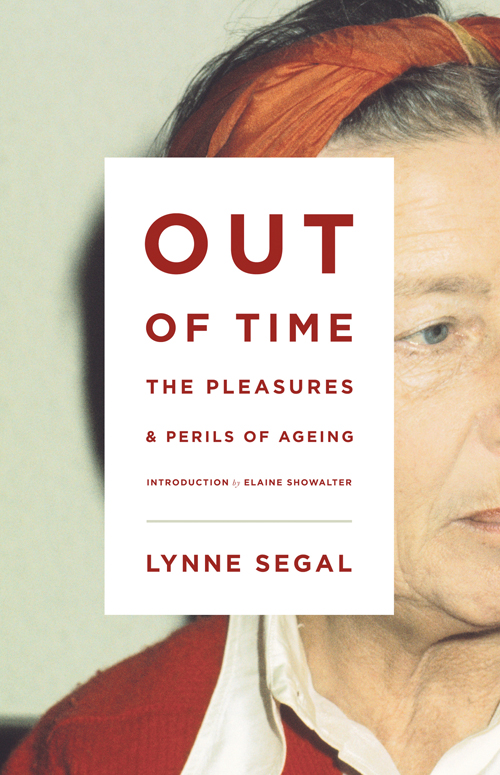
“In Out of Time, leading thinker Lynne Segal examines her life and surveys the work and lives of other writers and artists to explore the pleasures and perils of growing old. Following in the footsteps of Simone de Beauvoir—who in her mid-fifties mourned ‘never again!’ and yet was energetically writing in her sixties and seventies—Segal mixes memoir, literature and polemic to examine the inevitable consequences of staying alive.
Who is that stranger who stares back from the mirror? What happens to ambition and sexuality? As millions of baby boomers approach their sixth or seventh decade, these questions are becoming increasingly urgent. Must the old always be in conflict with the young? How can we deal with the inevitability of loss and find victory in survival?”
Buy it here.
#4 Event
By Slavoj Zizek
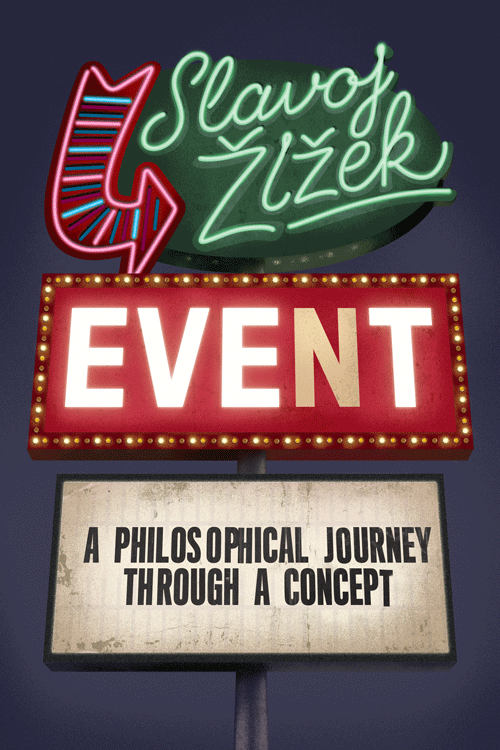
“A tsunami killed more than 200,000 people in Indonesia!” “The people have won! The dictator has run away!” “How is something as beautiful as Beethoven’s last piano sonata even possible?”
All these statements refer to what some of us would consider an event . . . An “Event” can refer to a devastating natural disaster or to the latest celebrity scandal, the triumph of the people or a brutal political change, an intense experience of a work of art or an intimate decision . . . An event is the effect that seems to exceed its causes—and the space of an event is the distance of an effect from its causes.
But, asks Slavoj Zizek, does everything that exists have to be grounded in sufficient reasons? Or are there things that somehow happen out of nowhere? How can philosophy help us to determine what an event is and how it is possible?”
Buy it here.
#5 Factory of Strategy: Thirty-Tree Lessons on Lenin
By Antonion Negri
“Factory of Strategy is the last of Antonio Negri’s major political works to be translated into English. Rigorous and accessible, it is both a systematic inquiry into the development of Lenin’s thought and an encapsulation of a critical shift in Negri’s theoretical trajectory.
Lenin is the only prominent politician of the modern era to seriously question the “withering away” and “extinction” of the state, and like Marx, he recognized the link between capitalism and modern sovereignty and the need to destroy capitalism and reconfigure the state. Negri refrains from portraying Lenin as a ferocious dictator enforcing the proletariat’s reappropriation of wealth, nor does he depict him as a mere military tool of a vanguard opposed to the Ancien Régime. Negri instead champions Leninism’s ability to adapt to different working-class configurations in Russia, China, Latin America, and elsewhere. He argues that Lenin developed a new political figuration in and beyond modernity and an effective organization capable of absorbing different historical conditions. He ultimately urges readers to recognize the universal application of Leninism today and its potential to institutionally—not anarchically—dismantle centralized power.”
Buy it here.
#6 Head Cases
By Elaine Miller
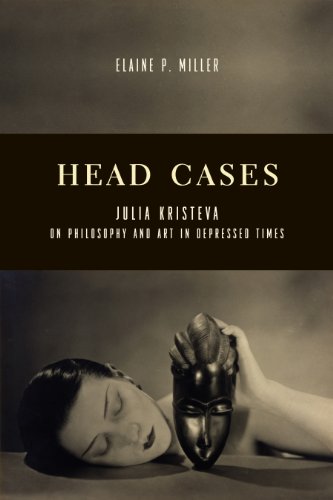
“While philosophy and psychoanalysis privilege language and conceptual distinctions and mistrust the image, the philosopher and psychoanalyst Julia Kristeva recognizes the power of art and the imagination to unblock important sources of meaning. She also appreciates the process through which creative acts counteract and transform feelings of violence and depression.
Reviewing Kristeva’s corpus, Elaine P. Miller considers the intellectual’s “aesthetic idea” and “thought specular” in their capacity to reshape depressive thought on both the individual and cultural level. She revisits Kristeva’s reading of Walter Benjamin with reference to melancholic art and the imagination’s allegorical structure; her analysis of Byzantine iconoclasm in relation to Freud’s psychoanalytic theory of negation and Hegel’s dialectical negativity; her understanding of Proust as an exemplary practitioner of sublimation; her rereading of Kant and Arendt in terms of art as an intentional lingering with foreignness; and her argument that forgiveness is both a philosophical and psychoanalytic method of transcending a “stuck” existence. Focusing on specific artworks that illustrate Kristeva’s ideas, from ancient Greek tragedy to early photography, contemporary installation art, and film, Miller positions creative acts as a form of “spiritual inoculation” against the violence of our society and its discouragement of thought and reflection.”
Buy it here.
#7 Settler Common Sense
By Mark Rifkin
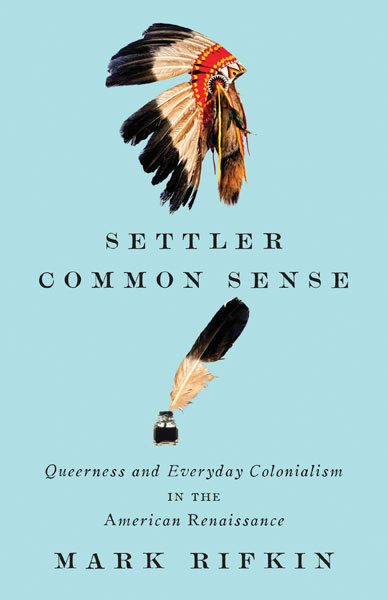
“In Settler Common Sense, Mark Rifkin explores how some of the most canonical of American writers take part in the legacy of displacing Native Americans. Although the books he focuses on are not about Indians, they serve as examples of what Rifkin calls “settler common sense,” taking for granted the legal and political structure through which Native peoples continue to be dispossessed.”
Buy it here.
#8 Queer Insists
By Michael O’Rourke
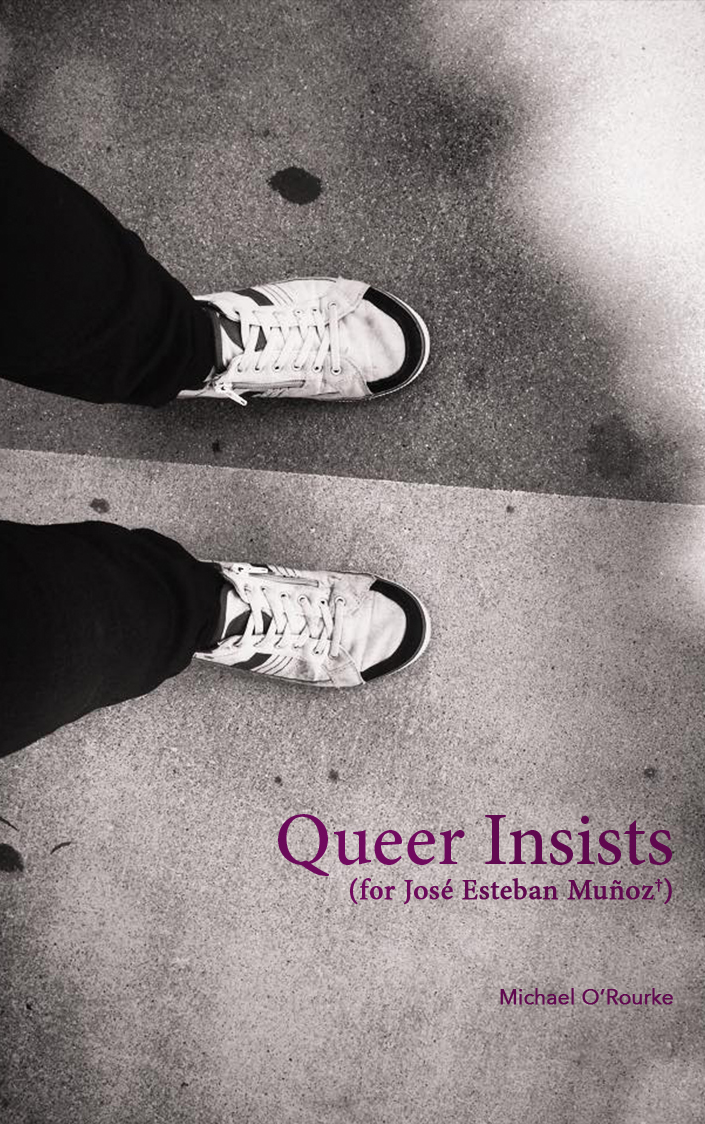
“Queer Insists is a memorial essay, a work of mourning, written for the queer theorist and performance scholar José Esteban Muñoz (1967-2013) shortly after his untimely death in December 2013. In a series of fragments, not unlike Roland Barthes’s Mourning Diary, Michael O’Rourke shares memories of Muñoz, the stories and reflections of his friends in the wake of his passing, and readings of his work from Disidentifications to Cruising Utopia and beyond. O’Rourke argues that, for Muñoz, queer does not exist, per se, but rather insists, soliciting us from the future to-come. Muñoz reached towards teleopoietic worlds as he invented a queer theory we have yet to find, but are invited to glimpse. Among the Muñozian themes this chapbook discusses are hope, utopia, affect, punk rock, heresy, the undercommons, temporality, hauntology, forgetting, loss, ephemera, partage, sense, incommensurability, the event and democracy. In reading Muñoz as a Rogue Theorist, this book borrows many of the gifts we have received (and have yet to receive) from him, marking the force and luminescence of his thought, and insisting upon the rare and precious singularity of his work. Muñoz bequeaths to us a queer studies without condition which it is our duty to foster and to bear as we carry it and him into the unknowable futures of an indiscipline.”
Buy it here.
#9 Controversies
By Alain Badiou and Jean-Claude Milner
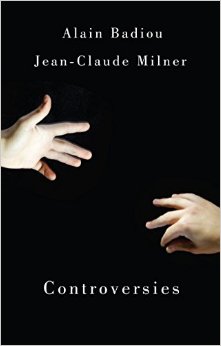
“In this wide-ranging and compelling dialogue, these two great thinkers explore the role of politics in today’s world and consider the need for a formal theory of communist political organization. Whether they are addressing the era of revolutions, and in particular the Paris Commune and the Chinese Cultural Revolution, or discussing the infinite, the universal, the name “Jew”, violence, capitalism, the left, or Europe, Jean-Claude Milner’s dyed-in-the-wool skepticism constantly runs up against Alain Badiou’s doctrinal passion.
This extraordinary debate ultimately leads to new areas of interrogation and shows that there is no better remedy for the crushing power of media-influenced thinking than the revival of the great disputes of the mind.
Buy it here.
#10 Introduction to Non-Marxism
By Francois Laurelle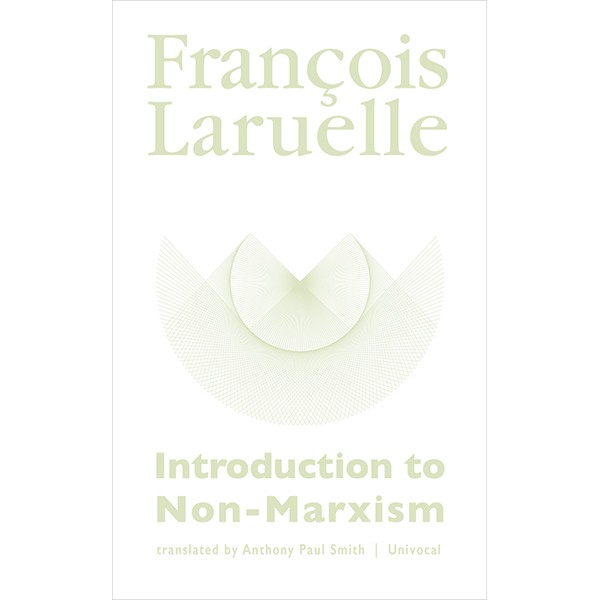
“Following the collapse of the communist states it was also assumed that Marxist philosophy had collapsed with it. In Introduction to Non-Marxism, François Laruelle aims to recover Marxism along with its failure by asking the question “What is to be done with Marxism itself?” To answer that question Laruelle resists both the temptation to make Marxism more palatable after the death of metaphysics by transforming Marxism into a mere social science or simply embracing with evangelical fervor the idea of communism. Instead Laruelle proposes a heretical science of Marxism that will investigate Marxism in both its failure and power so as to fashion new theoretical tools. In the course of engaging with the material of Marxism, Laruelle takes on the philosophy of Marx along with important philosophers who have extended that philosophy including Althusser, Balibar, and Negri as well as the attempt at a phenomenological Marxism found in the work of Michel Henry. Through this engagement Laruelle develops with great precision the history and function of his concept of determination-in-the-last-instance. In the midst of the assumed failure of Marxism and the defections and resentment that followed, Laruelle’s non-Marxism responds with the bold declaration: “Do not give up on theory!””
Pre-order it here.
#11 The Queerness of Native American Literature
By Lisa Tatonetti
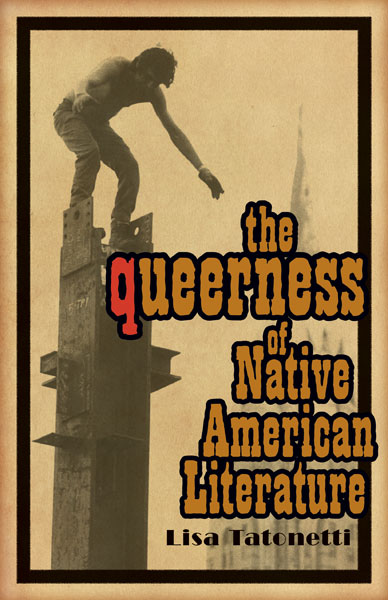
“In The Queerness of Native American Literature, Tatonetti recovers ties between two simultaneous renaissances of the late twentieth century: queer literature and Native American literature. She foregrounds how Indigeneity intervenes within and against dominant interpretations of queer genders and sexualities, recovering unfamiliar texts from the 1970s while presenting fresh, cogent readings of well-known works. In juxtaposing the work of Native authors—including the longtime writer–activist Paula Gunn Allen, the first contemporary queer Native writer Maurice Kenny, the poet Janice Gould, the novelist Louise Erdrich, and the filmmakers Sherman Alexie, Thomas Bezucha, and Jorge Manuel Manzano—with the work of queer studies scholars, Tatonetti proposes resourceful interventions in foundational concepts in queer studies while also charting new directions for queer Native studies.”
Buy it here.
#12 The Divine Left
By Jean Baudrillard
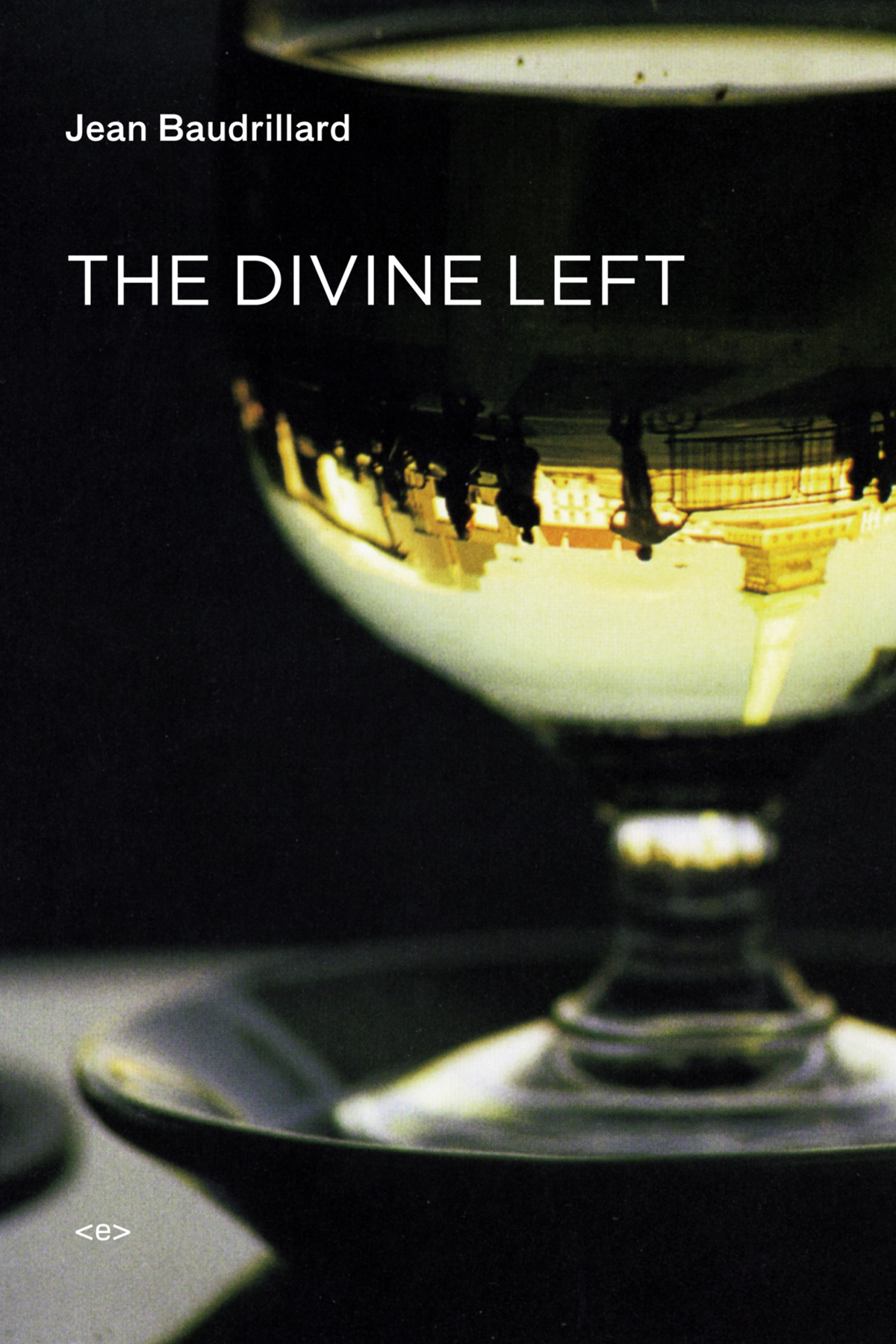 “First published in French in 1985, The Divine Left is Jean Baudrillard’s chronicle of French political life from 1977 to 1984. It offers the closest thing to political analysis to be found from a thinker who has too often been regarded as apolitical. Gathering texts that originally appeared as newspaper commentary on François Mitterand’s rise to power as France’s first Socialist president and the Socialist Party’s fraught alliance with the French Communist Party, The Divine Left in essence presents Baudrillard’s theory of the simulacrum as it operates in the political sphere.”
“First published in French in 1985, The Divine Left is Jean Baudrillard’s chronicle of French political life from 1977 to 1984. It offers the closest thing to political analysis to be found from a thinker who has too often been regarded as apolitical. Gathering texts that originally appeared as newspaper commentary on François Mitterand’s rise to power as France’s first Socialist president and the Socialist Party’s fraught alliance with the French Communist Party, The Divine Left in essence presents Baudrillard’s theory of the simulacrum as it operates in the political sphere.”
Buy it here.
#13 Nietzsche Apostle
By Peter Sloterdijk
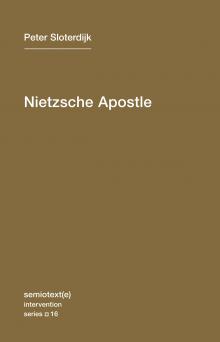 “For Peter Sloterdijk, Friedrich Nietzsche represents nothing short of a “catastrophe in the history of language”—a new evangelist for a linguistics of narcissistic jubilation. Nietzsche offered a philosophical declaration of independence from humility, a meeting-point of sobriety and megalomania that for Sloterdijk has come to define the very project of philosophy.
“For Peter Sloterdijk, Friedrich Nietzsche represents nothing short of a “catastrophe in the history of language”—a new evangelist for a linguistics of narcissistic jubilation. Nietzsche offered a philosophical declaration of independence from humility, a meeting-point of sobriety and megalomania that for Sloterdijk has come to define the very project of philosophy.
Yet for all the significance of this language-event named Nietzsche, Nietzsche’s contributions have too often been elided and the contradictions at the root of his philosophy too often edited out. As Sloterdijk observes, “Never has an author so insisted on distinction and yet attracted such vulgarity.” Nietzsche Apostle, drawn from a speech Sloterdijk gave in 2000 on the hundredth anniversary of Nietzsche’s death, looks at the ways in which Nietzsche has been branded over the years through selective compilation, and at the ways in which Nietzsche turned himself into a brand—a brand announced by his proclaimed “fifth Gospel,” Thus Spoke Zarathustra. For Sloterdijk, the focus should not be on the figure of Zarathustra or on the “will to power” often used as a kind of philosophical shorthand to sum up Nietzsche’s work, but on Zarathustra’s act of “speaking” itself. Nietzsche Apostle offers a brief history of self-praise and self-affirmation, an examination of the evolution of boasting (both by God and by man), and a very original approach to Nietzsche, philosophy’s first designer brand of individualism.”
Buy it here.
#14 Outlaws of the Atlantic
By Marcus Rediker
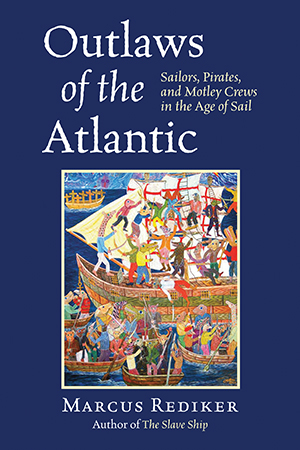
“In Outlaws of the Atlantic, award-winning historian Marcus Rediker turns maritime history upside down. He explores the dramatic world of maritime adventure, not from the perspective of admirals, merchants, and nation-states but from the viewpoint of commoners—sailors, slaves, indentured servants, pirates, and other outlaws from the late seventeenth to the early nineteenth century. Bringing together their seafaring experiences for the first time, Outlaws of the Atlantic is an unexpected and compelling peoples’ history of the “age of sail.”
With his signature bottom-up approach and insight, Rediker reveals how the “motley”—that is, multiethnic—crews were a driving force behind the American Revolution; that pirates, enslaved Africans, and other outlaws worked together to subvert capitalism; and that, in the era of the tall ship, outlaws challenged authority from below deck.”
Buy it here.
#15 Towards an Architecture of Enjoyment
By Henri Lefebvre
“Toward an Architecture of Enjoyment, the first publication of Henri Lefebvre’s only book devoted to architecture, redefines architecture as a mode of imagination rather than a specialized process or a collection of monuments. Lefebvre calls for an architecture of jouissance—of pleasure or enjoyment—centered on the body and its rhythms and based on the possibilities of the senses. ”
Buy it here.
#16 Deleuze and the Naming of God
by Daniel Coluciello Barber
“Deleuze and the Naming of God addresses the intersection between Deleuze’s thought and the notion of religion to proposes an alliance between immanence and the act of naming God. In doing so, Barber gives us a way out of the paralysing debate between religion and the secular.”
Buy it here.
#17 Prismatic Ecology
Edited by Jeffrey Jerome Cohen
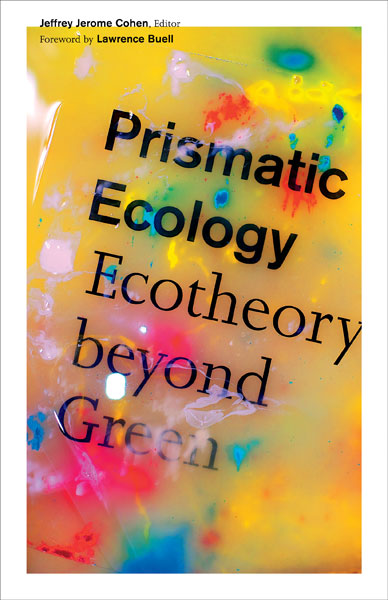
“Emphasizing sustainability, balance, and the natural, green dominates our thinking about ecology like no other color. What about the catastrophic, the disruptive, the inaccessible, and the excessive? What of the ocean’s turbulence, the fecundity of excrement, the solitude of an iceberg, multihued contaminations? Prismatic Ecology moves beyond the accustomed green readings of ecotheory and maps a colorful world of ecological possibility.
…Featuring established and emerging scholars from varying disciplines, this volume presents a collaborative imagining of what a more-than-green ecology offers. While highlighting critical approaches not yet common within ecotheory, the contributions remain diverse and cover a range of topics including materiality, the inhuman, and the agency of objects. By way of color, Cohen guides readers through a reflection of an essentially complex and disordered universe and demonstrates the spectrum as an unfinishable totality, always in excess of what a human perceives.”
Buy it here.
#18 Cut of the Real: Subjectivity in Poststructuralist Philosophy
By Katerina Kolozova
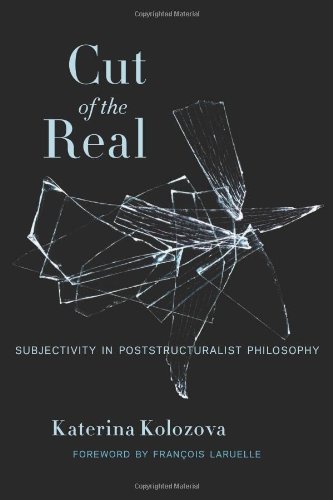
“Following François Laruelle’s nonstandard philosophy and the work of Judith Butler, Drucilla Cornell, Luce Irigaray, and Rosi Braidotti, Katerina Kolozova reclaims the relevance of categories traditionally rendered “unthinkable” by postmodern feminist philosophies, such as “the real,” “the one,” “the limit,” and “finality,” thus critically repositioning poststructuralist feminist philosophy and gender/queer studies.
Poststructuralist (feminist) theory sees the subject as a purely linguistic category, as always already multiple, as always already nonfixed and fluctuating, as limitless discursivity, and as constitutively detached from the instance of the real. This reconceptualization is based on the exclusion of and dichotomous opposition to notions of the real, the one (unity and continuity), and the stable. The non-philosophical reading of postructuralist philosophy engenders new forms of universalisms for global debate and action, expressed in a language the world can understand. It also liberates theory from ideological paralysis, recasting the real as an immediately experienced human condition determined by gender, race, and social and economic circumstance.
Buy it here.
#19 The Radical Thinkers Set 8
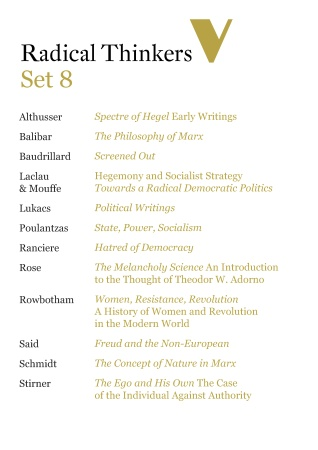 Ok, this is actually a bunch of books. The latest set includes 12 curated critical theory classics, including some otherwise hard to find in print. We spent most of January posting some of our favorite excerpts, which you can find here.
Ok, this is actually a bunch of books. The latest set includes 12 curated critical theory classics, including some otherwise hard to find in print. We spent most of January posting some of our favorite excerpts, which you can find here.
Check out more info on the set here.
#20 Representing Capital
By Fredric Jameson
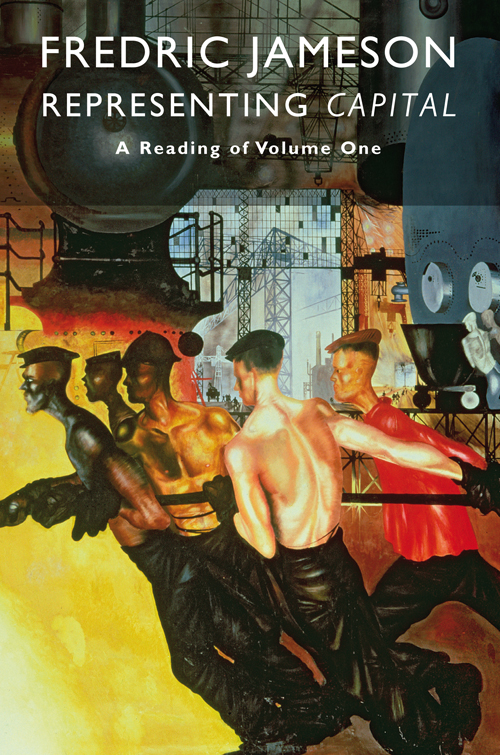
“Representing Capital, Fredric Jameson’s first book-length engagement with Marx’s magnum opus, is a unique work of scholarship that records the progression of Marx’s thought as if it were a musical score. The textual landscape that emerges is the setting for paradoxes and contradictions that struggle toward resolution, giving rise to new antinomies and a new forward movement. These immense segments overlap each other to combine and develop on new levels in the same way that capital itself does, stumbling against obstacles that it overcomes by progressive expansions, which are in themselves so many leaps into the unknown.”
Buy it here.

